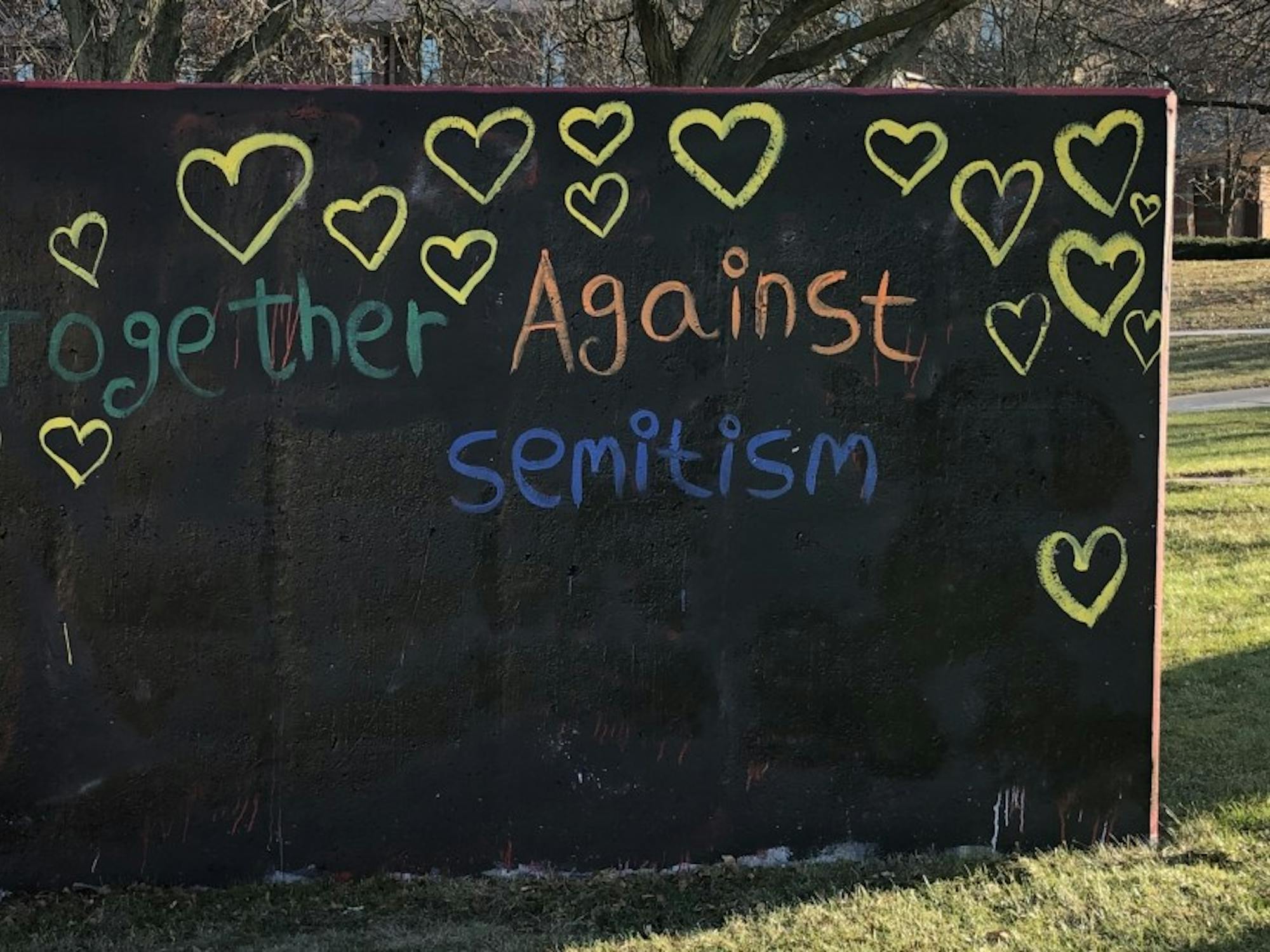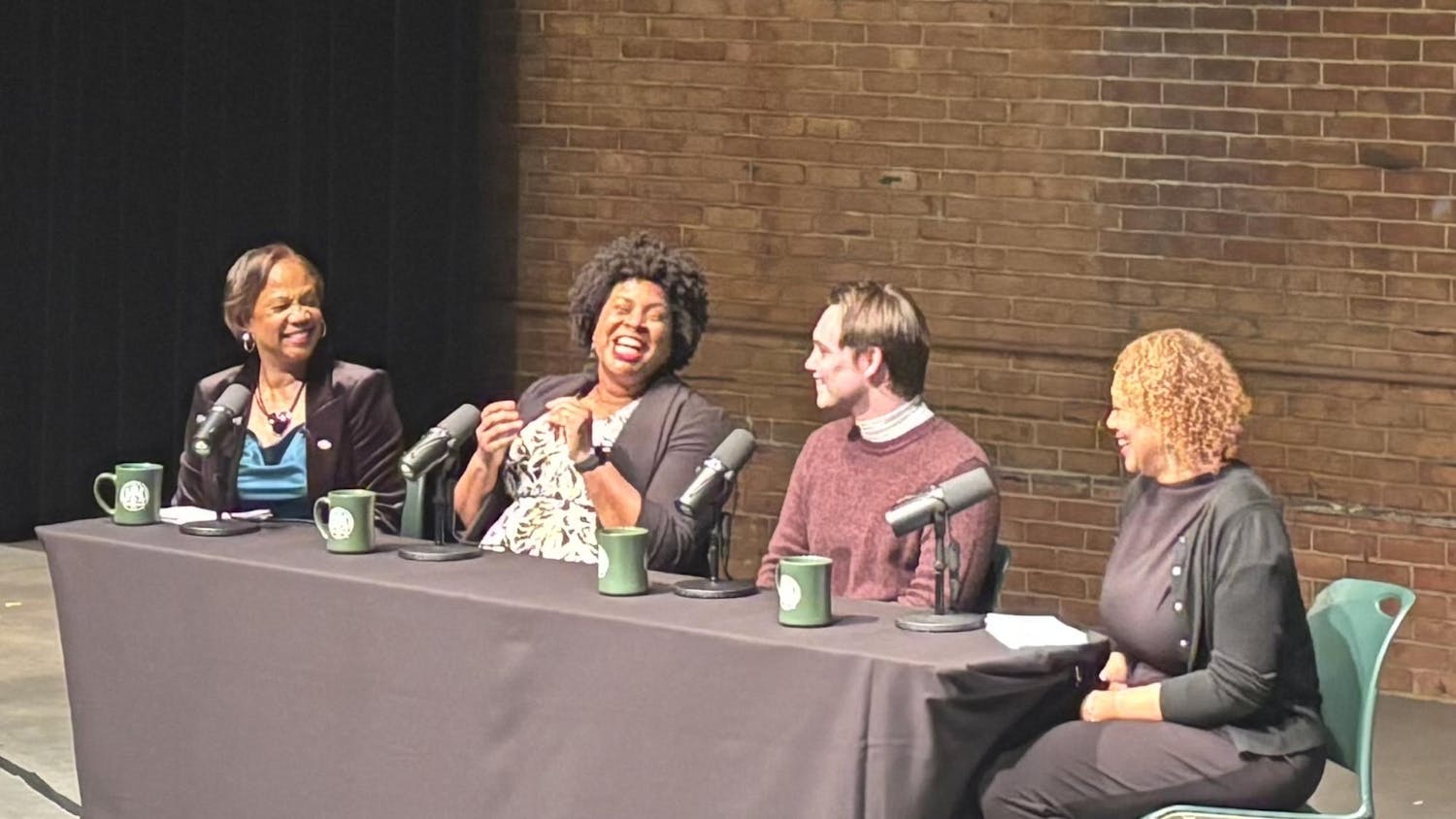In October, a speaker at the University of Michigan presented a lecture slide likening Israeli Prime Minister Benjamin Netanyahu to Adolf Hitler. In Pittsburgh’s Tree of Life synagogue, a gunman went on a shooting spree—killing 11 and injuring more—with the chilling battle cry “All Jews must die.” And this week, right here on EMU’s own campus, a message originally showing solidarity with the victims of the Pittsburgh shooting and the broader Jewish community was partially painted over, the new version—four key letters shorter than the original—reading “Together Against Semitism.”
On one level, the fact that I place these three events in the same list seems ludicrous, if not outrageous. How can I possibly compare a controversial speaker and a misuse of our student free speech message walls with a mass murder?
But on another level, at the core, these events all share the same essence: Antisemitism. Prejudice, discrimination, and/or hatred, religiously or culturally based, directed against the Jewish people. The same force—present to the current day, in its very different guises, whether born of ignorance or of conscious bigotry, from the Ku Klux Klan to the otherwise progressive political left—that led to Jews in France being advised not to publicly show their Jewishness, the same force that drives the world to move beyond justified criticism of a government to holding Israel to a double standard, and the same force that drove the Holocaust not so long ago.
The three instances with which I opened this article—two occurring close to home, one described as the “deadliest attack on Jews in the history of the United States”—hardly occur in a vacuum. In its 2017 audit, the Anti-Defamation League reported a 57% increase in antisemitic incidents (the largest single-year increase recorded since ADL released their first such audit, in 1979), a trend which has only heightened in the year since. Nor does this sudden increase, dramatic as it may be, come from out of nowhere. Growing up and living as a Jew—even with my fairly sheltered upbringing, within a community predominantly accepting of my religion and ethnicity—the reality of antisemitism is all too clear. From discriminatory comments made in my parents’ workplace environments to the demonstrators gathering on a weekly basis to protest outside a local synagogue during religious services, it’s impossible to miss… if we look.
But if we do not look, or if we look away, then the message we are sending is that this is okay, that this is socially permissible. If we do not look, or if we look away, then we are broadcasting our approval—or if not our approval, at least our acceptance.
The University of Michigan issued a statement acknowledging the offensiveness registered by students, while defending the presenter’s right for free speech in a deliberately provocative lecture series. The world condemned Robert Bowers, the shooter at the Tree of Life synagogue. And the EMU Department of Public Safety painted over the message wall, while our student government released a statement, endorsed by the university president, denouncing hatred and bigotry.
But for every speaker who presents a lecture slide comparing Hitler and Netanyahu, how many more are there who nod in agreement? For every gunman who walks into a synagogue to murder the worshipers there, how many more are there, in the privacy of their homes—or anonymous Internet personas—who quietly cheer him on? And for every student who paints over four letters to reverse the meaning of a message of solidarity, how many more are there who smile and wish they’d had the idea, or the nerve to do it themselves?
Whatever the precise number, there is a simple answer to these questions: Far, far too many.
And for those of us—most of us, as I profoundly hope—who do not nod, smile, and cheer? We are the ones with the opportunity, and the responsibility, to do what we can to challenge bigotry in all of its forms. We are the ones with the opportunity, and the responsibility, to stand up, speak out, and not let it slide.
So today, I ask you: When you encounter antisemitism—or racism, Islamophobia, sexism, homophobia, or any of the myriad other forms of prejudice, discrimination, hatred, or xenophobia which run rampant in our society—don’t turn away. When you see it, don’t cover your eyes; when you hear it, don’t cover your ears. When you think it, stop and question what inner motivations or misconceptions you may be carrying. When you encounter hate speech, be the one to speak back.
Today, I ask all of you—my fellow students, my fellow citizens, my fellow humans—let us take a stand, together, against antisemitism.










